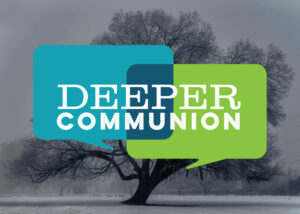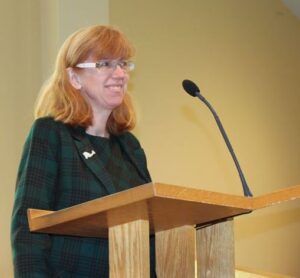I’m in the thick of it. I had my second child earlier this year and life is still in the process of reordering itself. The predictable schedule went out the window and is slowly settling back into something new and, well, busy. Finding time to keep up with everyday tasks—dishes, laundry, meal prep—is difficult. Babies change everything.
It would seem, though, that many of our neighbours understand this. I know this because for a month-and-a-half after the birth our family received a meal from someone every few days. As a result, time we would have spent on meal prep we spent on other things, like giving attention to our adjusting three-year-old, keeping up with school work or resting.
I don’t mention this to boast about our robust social circle. I’m writing about this because a bunch of caring people—some friends, but mostly acquaintances from church and school—dropped off food for our family in the biggest outpouring of neighbourly love I’ve experienced in, well, a while.
Church folk know about food and fellowship. The breaking of bread during communion and the church potlucks I’ve attended attest to that. But the giving of meals is something different. Whether in celebration for a birth, or in mourning for illness or loss, the giving of food, I believe, is one of the most profound gifts you can give.
It’s actually an awkward exchange. People came to our door, handed over the food along with an explanation of how to prepare it, chatted for a couple minutes, often to say, “I hope you like it,” and then gave well wishes and left. I accepted the offering with gratitude, but also slight embarrassment, feeling like I was “getting delivery” from someone I’d normally invite in for tea.
But it was an interaction we both understood. Because this is what we, as Christians, do, isn’t it? We help in practical ways that show our love. Love your neighbour as yourself.
I have trouble picturing something more than superficial when I hear that mantra: a pat on the back, a friendly smile or just plain being nice. I think it’s because of the word “neighbour.” To me, a neighbour is someone I don’t really know well. I live close to my neighbours, but not with them. We live our own lives. Doesn’t this relational distance make love difficult? Don’t you need to know someone well in order to love them?
Love seems to me such a weighty thing. If you love people, you’re in relationship with them. There’s intimacy and investment. When I think about the people I love, I think about those closest to me, those who walk with me along my journey. But the majority of people who came to our door are acquaintances, people I don’t know well but who are part of the communities my spouse and I are part of.
And yet these people did this incredible thing of preparing food for a family they don’t know well. They gave us a gift that helped us carry on, that kept us sustained and living well. Maybe I have my head in the sand, to feel so blessed by what is essentially kindness, or the “neighbourly thing to do.” But, on the other hand, how else should I feel in response to acts of love?
I usually think Christ calls us to a radical kind of love, not a “neighbourly” one. But, evidently, they’re one and the same.
To all our neighbours who gave us food, thank you.
Katie Doke Sawatzky lives in Vancouver. She can be reached at katiesawatzky@gmail.com.






Leave a Reply
You must be logged in to post a comment.